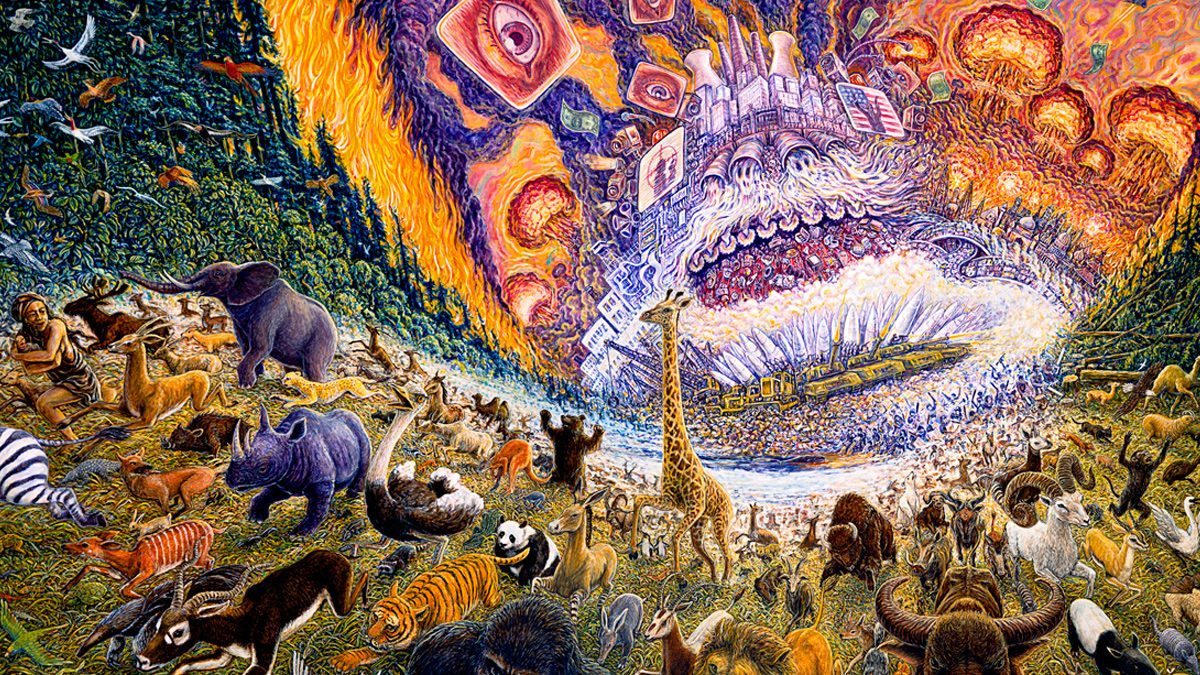As a writer, speaker, teacher, and leader in the areas of health and spirituality, Deepak Chopra has become one of the most popular voices in the dialogue between ancient wisdom and modern science. His books, audios, and videos have sold millions around the world, and he has assisted countless organizations and individuals to set themselves within a deeper, more holistic context.In this two-part dialogue, Deepak and Ken discuss two very different contexts for approaching the world situation. War, poverty, ecological despoliation—what can we do to curb our self-destructive ways?
From an absolute perspective, nothing needs to be done. Everything manifests as a form of Spirit, an expression of the Great Perfection. On the other hand, from a relative perspective, it is imperative that we act. Our lives depend upon a skillful response to the very real problems we face. This is where stages of consciousness play such an important role.
Any integral approach to change must account for both states and stages. A state of consciousness is a temporary experience; a stage is an enduring capacity. While states are important to give us glimpses of deeper, more compassionate modes of being, we ultimately want to develop to stages where this compassion becomes a trait of who we are. In short: if we want world peace, we have to account for stages of consciousness. Deepak and Ken agree that a stage-conception of human development is a missing ingredient in the work of many conflict-resolution and peace organizations.
The dialogue continues with a discussion of some of Deepak’s recent writings. Like many of his books, How To Know God and The Book of Secrets focus on what an individual can do to cultivate deeper awareness. In essence, these books are about practice. How do we face tragedy, personal and global, in a way that helps us grow, become stronger and more conscious? The dimension most often ignored by the most well-meaning political activists is precisely this realm of interior practice and development.
Ken highlights the importance of interior development by referring to the findings of Nobel Laureate economist Amartya Sen, who showed that famine has never occurred in a democratic nation. Sen found that, with its more efficient communication, open access to information, and distributed economic control, a democracy is simply better able to deliver valuable resources where they are needed. A democracy, however, doesn’t come from nowhere. It can only be created by a collective of individuals functioning at a relatively high level of interior development.
Here’s the fascinating twist: while there are many important and useful interior growth practices, it turns out that meditation is the only one empirically demonstrated to move an adult up an average of two levels of psychological development. This doesn’t mean there aren’t other ways to grow, but thus far, meditation is the most proven route. It follows that in order to end famine, an effective way to do so is to promote the practice of meditation.
Image: March of Progress by Mark Henson
Become a member today to listen to this premium podcast and support the global emergence of Integral consciousness
Membership benefits include:
Premium Content
Receive full access to weekly conversations hosted by leading thinkers

Journal Library
Receive full access to the growing Journal of Integral Theory & Practice library

Live Experiences
Stay connected by participating in Integral Life live events and discussions
Courses & Products
Get unlimited 20% discount off all products and courses from our friends and partners

Free Bonus Gifts
Download The Integral Vision eBook by Ken Wilber (worth $19 on Amazon) & The Ken Wilber Biography Series

Support of the movement
Support our mission of educating and spreading integral consciousness that is more critical than at any time in its history
About Deepak Chopra
Deepak Chopra, M.D. is the author of more than 70 books, including twenty-one New York Times bestsellers. His medical training is in internal medicine and endocrinology, and he is a Fellow of the American College of Physicians, a member of the American Association of Clinical Endocrinologists, and an adjunct professor of Executive Programs at the Kellogg School of Management at Northwestern University and Columbia Business School, Columbia University.
About Ken Wilber
Ken Wilber is a preeminent scholar of the Integral stage of human development. He is an internationally acknowledged leader, founder of Integral Institute, and co-founder of Integral Life. Ken is the originator of arguably the first truly comprehensive or integrative world philosophy, aptly named “Integral Theory”.

